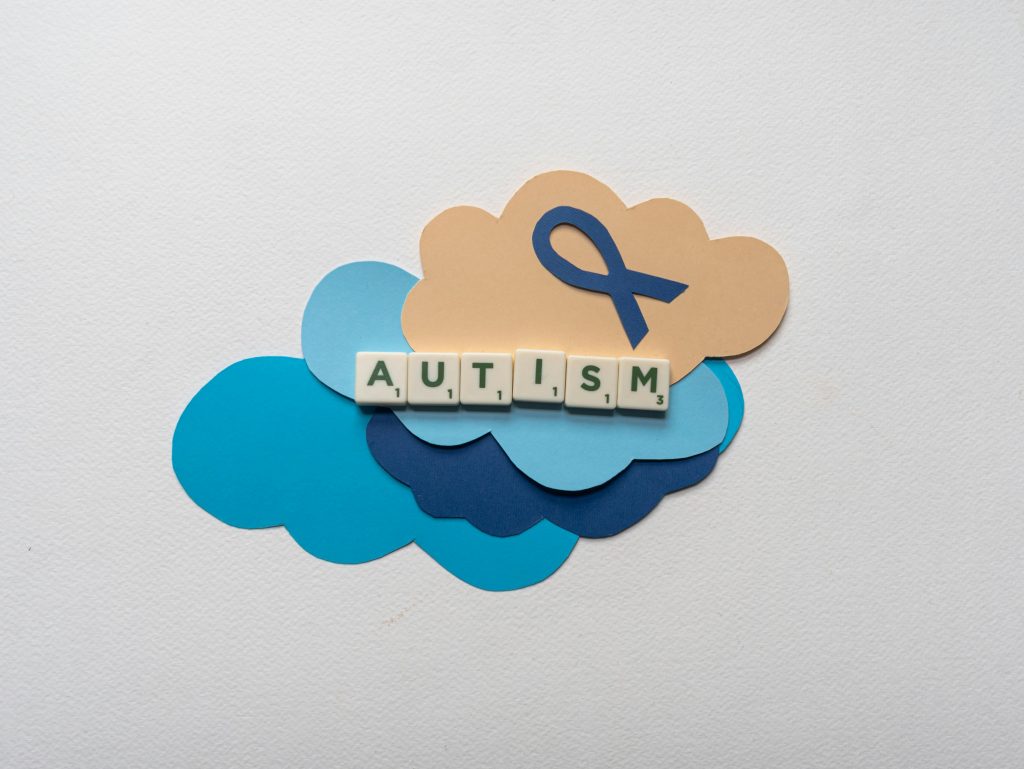
Is there any help for autistic children? Receiving an autism diagnosis for your child can feel overwhelming. Many parents experience a whirlwind of emotions—confusion, worry, and even relief at finally having an explanation for their child’s behaviours. However, an Autism Spectrum Disorder (ASD) diagnosis is not the end of the road;. rather, it marks the beginning of a new journey—one filled with unique challenges but also immense possibilities.
In our previous post, we discussed the signs of autism, helping parents recognise early indicators. Now, let’s explore the next steps. Here are ten essential actions to take to support your child effectively.
1. Educate Yourself About Autism
The first and most crucial step is education. Knowledge is power, and the more you understand about autism, the better equipped you will be to advocate for your child. Autism Spectrum Disorder (ASD) is a complex developmental condition characterised by challenges with social skills, repetitive behaviours, speech, and nonverbal communication. It’s called a “spectrum” because each child is unique, with varying abilities and challenges.
What You Should Do:
- Read credible books and articles about autism. Some highly recommended ones include The Reason I Jump by Naoki Higashida and Uniquely Human by Dr Barry Prizant.
- Visit reliable websites such as the Autism Society, Autism Speaks, and the NHS ASD page.
- Attend workshops and seminars conducted by autism specialists or advocacy organisations.
- Speak to professionals, including paediatric neurologists, developmental paediatricians, and psychologists.
Educating yourself helps demystify autism, reducing fear and anxiety. It also enables you to make informed decisions about therapies, educational placements, and interventions. Moreover, understanding your child’s behaviour from an autism perspective fosters patience and empathy.
2. Seek Professional Support
Once you receive a diagnosis, it’s essential to build a team of professionals to support your child. Early intervention is key, as research has consistently shown that starting therapy early improves outcomes.
Who You Should Consult:
- Developmental Paediatrician: Specialises in managing developmental delays and autism.
- Speech Therapist: Helps with communication difficulties.
- Occupational Therapist: Assists with sensory integration and daily living skills.
- Behavioural Therapist: Often uses Applied Behaviour Analysis (ABA) to help improve social, communication, and learning skills.
Next Steps:
- Schedule assessments with each specialist to understand your child’s unique needs.
- Develop a tailored intervention plan. This might include speech therapy, occupational therapy, ABA therapy, or other specialised programmes.
- Regularly monitor your child’s progress and adjust the intervention plan as necessary.
Professional support ensures that your child gets expert guidance and the best possible start. It also provides you with strategies to manage behaviours and support learning at home.
3. Connect with Support Groups
Navigating autism can be isolating, but you are not alone. You can get help for autistic children by connecting with other parents facing similar challenges can be incredibly comforting and insightful. Support groups provide a platform for sharing experiences, advice, and emotional support.
Where to Find Support:
- Local autism organisations often host support group meetings.
- Online communities, such as Facebook groups and autism forums, provide round-the-clock support.
- Join advocacy groups like Autism Speaks or the Autism Society, which offer resources and community connections.
Hearing from others who have been in your shoes can provide hope, practical tips, and a sense of community. It also reduces the feeling of isolation, which many parents experience after an autism diagnosis.
4. Develop an Individualised Education Plan (IEP)
Education is a fundamental right for every child, including those on the autism spectrum. An Individualised Education Plan (IEP) is a binding document that outlines your child’s educational goals and the services required to achieve them. Schools like Bethesda Child Support Agency and AnthosHouse provide the much needed support.
How to Get Started:
- Contact your child’s school to request an evaluation for special education services.
- Collaborate with teachers, special educators, and therapists to develop the IEP.
- Ensure the IEP includes specific goals tailored to your child’s needs, such as communication, social skills, and academic development.
- Regularly review and update the IEP to reflect your child’s progress.
An effective IEP ensures that your child receives the necessary support and accommodations, creating a conducive learning environment. It also protects your child’s rights in the educational system.
5. Create a Structured Home Environment
Children with autism often thrive in structured environments, where routines are predictable, and changes are minimal. A well-organised home environment provides a sense of security and reduces anxiety.
Tips to Implement Structure:
- Establish Daily Routines: Set consistent routines for waking up, meals, play, therapy sessions, and bedtime.
- Use Visual Schedules: Utilise visual schedules with pictures or symbols to help your child understand daily activities.
- Create Designated Spaces: Organise specific areas for learning, play, and relaxation.
- Prepare for Changes: Inform your child in advance about changes in routine, such as holidays or doctor’s appointments.
Consistency and predictability help children with autism feel secure and reduce meltdowns or anxiety. It also improves their understanding of expectations, easing daily transitions.
6. Focus on Your Child’s Strengths
Children with autism often possess unique strengths and talents. Some excel in music, art, mathematics, or technology. Identifying and nurturing these abilities boosts their confidence and helps them develop a positive self-identity.
How to Discover Their Strengths:
- Observe Interests: Pay attention to activities your child engages in for extended periods.
- Introduce Varied Hobbies: Try out different hobbies, such as music, drawing, puzzles, or computer games, to identify their preferences.
- Collaborate with Professionals: Work with teachers or therapists to recognise and nurture these talents.
Focusing on strengths encourages your child to explore their potential, enhancing their self-esteem and independence. It also enables them to participate in activities that bring joy and fulfilment.
7. Prioritise Self-Care
Caring for a child with autism can be demanding. It’s essential to prioritise your well-being to maintain the physical and emotional strength needed to support your child.
Practical Self-Care Tips:
- Take Short Breaks: Make time for brief breaks throughout the day to recharge.
- Join Support Groups: Connect with other parents for emotional support and shared experiences.
- Practice Stress Management: Incorporate mindfulness techniques, meditation, or yoga into your routine.
Your well-being directly impacts your child’s well-being. When you are healthy and happy, you can provide better care and support.
8. Advocate for Your Child
As a parent, you are your child’s most powerful advocate. This involves ensuring they receive their rights to education, healthcare, and social inclusion.
How to Advocate Effectively:
- Learn About Legal Rights: Familiarise yourself with your child’s rights under laws. For example, Lagos State has the Lagos Special People’s Law. Which details how a child should not be discriminated against and penalties for such.
- Build Positive Relationships: Collaborate effectively with educators, therapists, and healthcare providers.
- Prepare for IEP Meetings: Attend Individualised Education Plan (IEP) meetings prepared with questions and suggestions.
- Speak Up for Your Child’s Needs: Advocate for appropriate resources and accommodations whenever necessary.
Effective advocacy ensures that your child receives the required support and opportunities to thrive in all aspects of life.
9. Stay Informed About Therapies and Interventions
Autism interventions are continually evolving. Staying informed about the latest therapies enables you to make well-informed decisions for your child.
What to Explore:
- Evidence-Based Therapies: Consider proven therapies such as Applied Behaviour Analysis (ABA), speech therapy, occupational therapy, and social skills training.
- Alternative Therapies: Explore alternative approaches like music therapy, art therapy, and sensory integration therapy.
An informed approach helps you choose the best interventions to support your child’s growth and development.
10. Celebrate Progress, No Matter How Small
Every achievement, no matter how minor it may seem, is a victory worth celebrating. This positive reinforcement encourages your child and fosters a supportive environment.
Recognising and celebrating progress boosts your child’s confidence and motivates them to keep learning and growing.
Conclusion
Receiving an autism diagnosis is just the beginning of a journey filled with challenges, growth, and countless victories. By taking these ten steps, you equip yourself and your child with the tools needed to navigate the complexities of autism with confidence and optimism.
While early intervention, structured routines, and tailored educational plans play vital roles, it’s also essential to consider overall health and well-being. Studies suggest that nutritional support can positively influence cognitive function, behaviour, and overall development in children with autism.

One such supplement is Zinzino Balance Oil. This high-quality omega-3 supplement is specially formulated to support brain function, reduce inflammation, and improve focus and mood. It helps balance the body’s omega-6 to omega-3 ratio, which is crucial for optimal brain development and function.
Incorporating Zinzino Balance Oil into your child’s daily routine can provide the essential nutrients needed for better cognitive performance and emotional regulation. This is not just about managing autism—it’s about giving your child the best possible foundation for growth, learning, and a happier life.
Ready to take the next step?
Give your child the support they deserve. Try Zinzino Balance Oil today and witness the positive changes firsthand. For more information, visit our website or contact us directly.
Your journey is unique, and every step counts. Let’s walk it together—with knowledge, love, and the right support.
